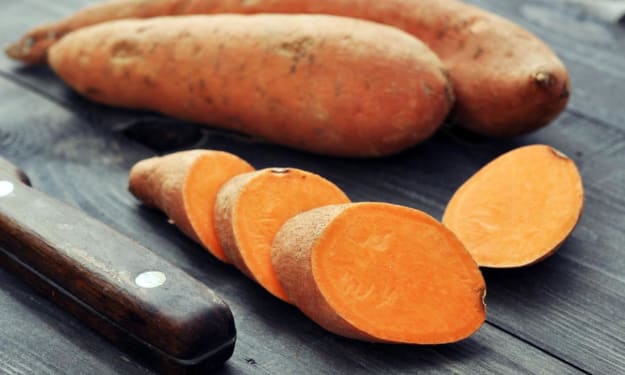7 Foods That Could Lower Your Cancer Risk
7 Foods That Could Lower Your Cancer Risk

We frequently equate the advantages of healthy eating with the prevention of diseases such as diabetes, heart disease, and obesity. But did you know that some meals may also help you reduce your cancer risk?
According to the National Cancer Institute, more than 1.7 million new cancer cases were identified in the United States in 2018. In their lifetime, over 40% of Americans will be diagnosed with cancer.
Here are some of the finest meals for cancer prevention, as well as others to avoid.
* Goji berries and blueberries
Because they are abundant in antioxidants and other vitamins like vitamin C and beta-carotene, blueberries and goji berries are two crucial foods that help lessen your cancer risk.
In cancer-fighting meals, antioxidants are essential elements. They aid in the body's defence against free radicals, which may harm and destroy cells. According to the American Cancer Society, those who consume more antioxidant-rich fruits and vegetables have a decreased risk of some malignancies.
* Green Tea
Green Tea Polyphenols are an antioxidant found in green tea. They are particularly significant since the body can quickly absorb them, according to Oxidative Medicine and Cellular Longevity.
* Curcumin
Turmeric is a spice that includes the active component curcumin, which is being researched for its potential use in cancer treatment. Curcumin, for example, has been found in studies to help control tumour growth and prevent malignancies such as breast and colon cancer. According to a 2016 study, turmeric can help eliminate breast cancer cells by reducing "oxidative stress" on the cells. Turmeric is commonly used in curries and stir fries and goes well with a variety of other foods.
*Ginger
Ginger is a root herb that is anti-inflammatory. According to a research published in Nutrition and Cancer, reducing inflammation, a recognised precursor to cancer and other chronic diseases, may be crucial to lowering your cancer risk. According to a 2015 research published in the American Journal of Chinese Medicine, ginger's main component, 6-shogaol, has powerful anti-cancer properties.
* Green Leafy Vegetables
Leafy greens, such as spinach, broccoli, and kale, are strong in antioxidants, carotenoids, and vitamin C, as well as enzymes that preserve cell DNA. According to a recent study published in the World Journal of Gastroenterology, consuming leafy green vegetables can help reduce the risk of colon cancer. A research published in the International Journal of Epidemiology has linked greens consumption to lower cancer and premature mortality chances.
* Foods to Stay Away From
On the other hand, the American Cancer Society recommends avoiding the following foods to help reduce your cancer risk:
*Foods with a lot of chemicals and preservatives *Foods with a lot of added sugar, such as sugary drinks *Processed meats
* Carrots
Carrots have been associated to a lower risk of various forms of cancer in several studies.
For instance, based on the findings of five studies, consuming carrots may lower the incidence of stomach cancer by up to 26%. (4Trusted Source).
A higher carrot diet was linked to an 18% decreased risk of prostate cancer in another research (5Trusted Source).
Diets of 1,266 people with and without lung cancer were examined in one research. Current smokers who did not consume carrots were three times more likely to acquire lung cancer than those who consumed carrots at least once a week, according to the study (6Trusted Source).
To improve your consumption and maybe lessen your cancer risk, try adding carrots to your diet as a nutritious snack or delectable side dish a few times each week.
However, keep in mind that while these studies suggest a link between carrot intake and cancer, they don't take other factors into consideration.
* "Cancer has no power over love, no power over hope, no power over the soul."





Comments
There are no comments for this story
Be the first to respond and start the conversation.